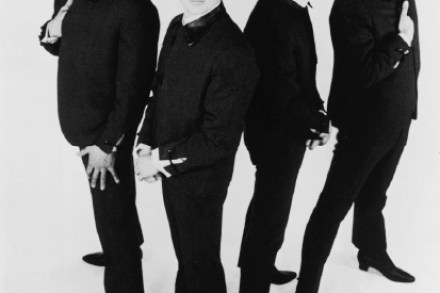Spectator competition: female chauvinist pigs on men behaving badly (plus: when Damon Runyon met John Bunyan…)
There are man-haters everywhere, it seems, from children’s telly to high culture. Charges of sexism have been levelled against the creators of the Daddy Pig character in Peppa Pig — daddy is portrayed as a hopeless bumbling idiot while Mummy Pig is the embodiment of good sense — and the literary critic Harold Bloom argues that there is ‘a strong element’ of misandry in Shakespeare (whereas misogyny, he says, is hard to find). The latest challenge invited you to climb aboard the bandwagon and compose an extract from an imaginary novel written from the perspective of a female chauvinist author. In a small but accomplished entry, Sergio Michael Petro, Frank




















